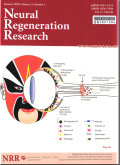摘要Most of all strokes are ischemic due to occlusion of a vessel, and comprise two main types, thrombotic and embolic. Inflammation and immune response play an important role in the outcome of ischemic stroke. Pharmaceutical and cell-based therapies with immunomodulatory properties could be of benefit in treating ischemic stroke. Possible changes in microRNAs brought about by immunomodulatory treatments may be important. The pharmaceutical studies described in this review have identified several differentially regulat-ed miRNAs associated with disregulation of mRNA targets or the upregulation of several neuroprotective genes, thereby highlighting the potential neuroprotective roles of specific miRNAs such as miR-762, -1892,-200a, -145. MiR-124, -711, -145 are the strongly associated miRNAs predicted to mediate anti-inflamma-tory pathways and microglia/macrophage M2-like activation phenotype. The cell-based therapy studies reviewed have mainly utilized mesenchymal stem cells or human umbilical cord blood cells and shown to improve functional and neurological outcomes in stroke animals. MiR-145 and miR-133b were implicated in nerve cell remodeling and functional recovery after stroke. Human umbilical cord blood cells decreased proinflammatory factors and promoted M2 macrophage polarization in stroke diabetic animals.
更多相关知识
- 浏览25
- 被引10
- 下载0


相似文献
- 中文期刊
- 外文期刊
- 学位论文
- 会议论文



 换一批
换一批 换一批
换一批



